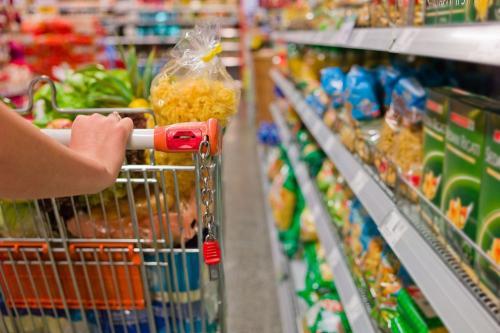BEIJING, March 30 (Xinhua) -- With the easing of the COVID-19 outbreak in China, vouchers are being broadly used by local governments and merchants to boost consumer spending, a short-term stimulus analysts say would gain better effect if coupled with expectations on steady job gains.
The eastern Chinese city of Hangzhou announced a plan to issue e-vouchers via Alibaba's online-payment service Alipay Thursday. By 4 p.m. Sunday, the resulting consumer spending had amounted to 453 million yuan (about 64 million U.S. dollars), 15 times as much as the total of the vouchers given out, with the redeemed government subsidies reaching 28.93 million yuan, data from local commerce bureau showed.
Apart from Hangzhou, other local governments including Nanjing and Hefei have issued vouchers for residents which can be spent in restaurants, gymnasiums, bookshops and tourist spots to stimulate consumption hit hard by the novel coronavirus outbreak.
Song Jun, a beneficiary of this voucher campaign, posted a 100-yuan voucher he used on a social media platform. "In no time, I topped up 200 yuan in a restaurant, paying half of the costs on my own. In other words, I went Dutch with the government," Song said in his post.
Zhang Yueyou, an associate researcher at Nanjing University, expected the voucher distribution to release the pent-up demand, boost consumer confidence in the short term and shore up the service sector battered severely by the epidemic outbreak.
Compared with handing out cash to citizens in the United States and Britain, giving out vouchers could directly stimulate spending, according to a research paper from Everbright Securities, which forecast vouchers could boost overall consumption by 20 percent on average.
NO OVERSTRETCH
But scepticism remained that not all local governments can afford to impose a heavy dose of voucher stimulus, as the epidemic is taking a toll on governments' coffers in different degrees.
Revenues of China's central and local government in the first two months dropped 9.9 percent year on year and its spending also plunged 2.9 percent as social and economic activities halted.
Local governments need to consider how much funding they can afford when rolling out measures to stimulate consumer spending, and to ensure that the measures can bring real benefits to businesses and the public, said Ha Zengyou, an official with the National Development and Reform Commission.
Being the biggest contributor to China's economic growth over the past six years, retail sales are expected to lead the post-epidemic recovery and provide the Chinese economy a much-needed cushion if the spread of the coronavirus elsewhere deals a much heavier blow to the world economy.
JOB MATTERS
In the first two months, China's retail sales shrank by 20.5 percent year on year, as the country had suspended businesses, factory production and transport to contain the spread of the virus.
China's surveyed unemployment rate in urban areas stood at 6.2 percent in February, up by 1 percentage point from January, according to the National Bureau of Statistics.
Despite the business disruptions from the virus, a total of 1.08 million new urban jobs were created in the first two months. Meanwhile, 2.19 million jobless people have received 6.1 billion yuan worth of unemployment insurance in the first two months.
As businesses are slowly recovering, analysts stress the need to orderly resume work and production soon to provide people with a sustainable income through employment, and to create a safe and secure consumer environment.
Only when employment and income are ensured could the people have more propensity and ability to consume, said Ming Ming, an analyst with CITIC Securities, noting that measures proposed by the government should help underwrite purchasing power.
A meeting of the Political Bureau of the CPC Central Committee noted Friday that China will help impoverished people return to their posts and get employed, orderly crank up resumption of malls and markets, expand household and public consumption while maintaining the prevailing trend of new online consumption.
A package of macro policies and measures will also be introduced. The country will appropriately raise the fiscal deficit ratio, issue special treasury bonds, increase the scale of special bonds for local governments, and guide the interest rate to decline in the loan market.
As the coronavirus pandemic has sparked panic and quarantine elsewhere across the world, business suspension and factory closedown might be a new reality Western economies have to face for several months to come.
A separate report from S&P Global Market Intelligence noted that it could be some time before demand recovers and that the improving situation in China gives hint of post-coronavirus consumer landscape.




 A single purchase
A single purchase









